Honda Civic 4th Gen Tuning
"All you need to know about tuning the Honda Civic 4th Gen engine!"
The Honda Civic 4th generation was produced between the years 1987 and 1991. The same vehicle was sold under the Honda Ballade badging in South Africa.
It has become an appreciating classic and I've recently seen these going for more than an 8th Generation Civic.
The redesigned body of the 4th generation featured a lower hood line and thus had a lower drag.
It was offered in the following different body styles:
- 3 door hatchback with code EC/EE;
- 4 door sedan with code EF;
- 5 door station wagon with code EE.
One model that keeps cropping up in emails and questions we get sent, is the Civic 4th Gen, and what parts work best on it. So we've put together this web page to cover the primary areas you should tune and outline which modifications we feel are the best.
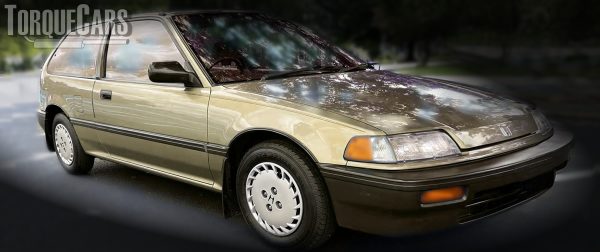
Check out our video introduction to Honda Tuning, all you need to know about mods and upgrades on your Honda.
The Honda Civic 4th Gen are fantastic to work on and with the best sports mods like ECU maps, turbo kits, and camshafts you will positively improve your driving pleasure.
These vehicles were more advanced as compared to the previous generation as they had upgraded suspensions which were as follows:
Front: Double Wishbone Suspension;
Rear: Independent suspension.
The length of the wheelbase was increased from 96.5 inches to 98.4 inches. This resulted in more cabin space and legroom.
Here we review Civic 4th Gen tuning and highlight the ultimate mods that work.
We have Civic tuning guides covering Civic 3rd Gen Mods, Civic 4th Gen Mods, Civic 5th Gen Mods, Civic 6th Gen Mods, Civic 7th Gen Mods, Civic 8th Gen Mods, Civic 9th Gen Mods, and Civic 10th Gen Mods
EC EE EF Civic 4th Gen Engine & Swaps
We recommend the following engine choices for the Honda Civic 4th generation:
- 1.6-litre B16A I4 that produced 160 hp and 150 Nm torque;
- 1.6-litre D16A9 that produced 125 hp and 143 Nm torque;
- 1.6-litre ZC SOHC I4 that produced 128 hp and 145 Nm torque.
All Civics offered in the US market were fuel injected. This made them different from the vehicles offered in other regions especially in terms of power and fuel economy.
The Honda Civic 4th generation was available with the following engine choices:
- 1.3 L D13B I4;
- 1.4 L D14A I4;
- 1.5 L D15B1 I4;
- 1.5 L D15B2 I4;
- 1.6 L D16A6 I4;
- 1.6 L ZC SOHC I4;
- 1.6 L D16A9 I4;
- 1.6 L B16A I4.
Honda Civics of the fourth generation often have their engines swapped with the B16A, B18A, or ZC. D16A8, D16A9, B16A2, B17A, and B16B are some more choices.
For the most part, you can just throw in the D16A8, D16A9, or ZC and you're good to go. The B16A, B18A, B16A2, B17A, and B16B, on the other hand, will need Place Racing or Hasports mounts.
The hood may need to be replaced or altered when switching with the ZC, so keep that in mind.
Tuning the Honda Civic 4th Gen and best Civic 4th Gen performance parts.
Best Civic 4th Gen tuning parts
Just because available upgrades are appear in lots of Civic 4th Gen projects it doesn't mean it is good, we will instead focus on the best upgrades that will give your Civic 4th Gen the biggest power gain return for your cash.
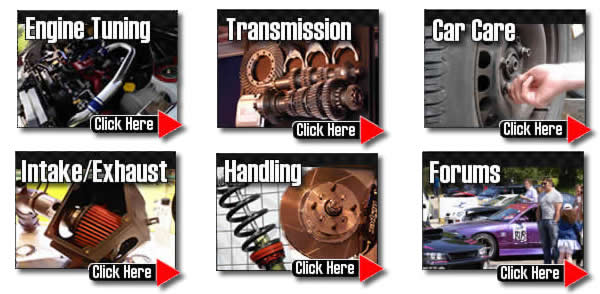
If you own a 4th generation of Honda Civic and are looking for performance mods and upgrades, you’ve come to the right place. So, without any wait, let’s get started and discuss some of the mods and upgrades you can easily perform on your car and get phenomenal results.
Check out our video introduction to Honda Civic Tuning, all you need to know and full guide.
Best mods for your Civic 4th Gen
- Turbocharger Upgrades - Adding a turbocharger is the most significant way to improve intake air supply, which permits you to burn more fuel and make higher power. Usually one of the most challenging upgrades you'll see massive gains.
- Fast road Camshafts are generally the biggest mechanical mod upgrade, but we strongly suggest they be installed in your engine by someone qualified to set them up properly and it is often hard to find a suitable cam near you but there is usually a local firm to regrind a stock cam .
- Intake and Sports Exhausts - Please note that on their own these mods won't ADD POWER for most setups, but they will enable you to release power after other mods by removing the restriction.
- Brake Upgrades - Enhancing your stopping power needs to be somewhere in your mods list.
- Flowing and porting the Head - Head work will get air flowing into the engine while removing turbulence or restrictions.
- Lightened Flywheels - a lower mass flywheel will improve the engines ability to rev freely. Not always not a great upgrade for all Civic 4th Gen engines.
- Civic 4th Gen Handling modifications - Fitting a more sporty Suspension kit dramatically improves Civic 4th Gen handling Poly Bushes and Coilovers are typically fitted to achieve this
Civic 4th Gen Tuning Stages
Typical stage 1 mods often include: Suspenson (mild drop), Intake manifolds, piggy back ECU, Sports exhaust manifold, Panel air filters, Fast road camshaft.
Typical stage 2 mods often include: Suspension (Sports), Sports catalyst & performance exhaust, induction kit, Ported and polished head, high flow fuel injectors, fuel pump upgrades.
Typical stage 3 mods often include: Internal engine upgrades (head flowing porting/bigger valves), Engine balancing & blueprinting, Adding or Upgrading forced induction (turbo/supercharger), Twin charging conversions, Crank and Piston upgrades to alter compression, Competition cam.
Civic 4th Gen Handling/Suspension Upgrades
Upgrades to the Civic 4th Gen's suspension and handling
Handling tweaks are often the initial step for the Civic 4th Gen.
We would choose a set of Coilovers that enable lower or raise the car to adjust your handling to suit your needs
Is there anything I should bear in mind while deciding on suspension upgrades for my Civic 4th Gen?
Civic Suspension Mods
As the suspension of a vehicle plays a pivotal role in the ride quality, there are several options that you can upgrade in this regard.
Springs
If you want to get better quality springs for your Honda Civic 4th generation, some of the options include:
- D2 Racing Pro Lowering Springs;
- Megan Racing Performance Lowering Springs;
- Skunk2 Lowering Springs;
- TEIN S-Tech Lowering Springs;
- TruHart Lowering Springs.
With such lowering springs, you can improve the handling of your car and corner easily at higher speeds.
Such performance springs range in price from $120 to $200.
Shocks/ Struts
Shocks and struts also play a role in the overall drive quality. Here are some of the high-quality upgrade options for your Honda Civic 4th generation:
- TruHart Sport Shocks/ Struts;
- Skunk2 Sport Shocks/ Struts;
- KONI STR.T Street Shocks/ Struts
- KONI Sport Adjustable Shocks/ Struts;
- KYB Excel-G Shocks/ Struts.
These parts range in price from $92 to $325.
Civic Coilovers
If you want the best ride quality possible from your 4th generation Honda Civic, get yourself one of these Coilover kits. They might be costly but the result is amazing.
- D2 Racing RS;
- TruHart Basic;
- TruHart StreetPlus;
- Skunk2 Pro ST;
- Skunk2-S II;
- Buddy Club Sport Spec;
- Megan Racing EZ II Series.
Such parts range in price from $410 to $1120.
Upgrading your Civic Bushes
What you need to know about the improvements to the bushings
The Civic 4th Generation's suspension components may be attached to the car's chassis thanks to bushings, which are rubber mounts. As the rubber ones wear out, they will begin to fail.
You may dramatically enhance your vehicle's performance by installing new OEM rubber bushings.
Rubber bushings are softer, but they last longer and keep the car's handling stable. Polyurethane bushings, on the other hand, are stiffer.
Other suspension components may indeed degrade faster if they experience increased vibration and play.
Rubber bushings are notorious for their excessive play, which may be alleviated with a new set of polyeyurothane bushings.
A complete set of poly bushings may be difficult to acquire, but most retailers will carry at least the major mounts. It's not uncommon for poly bushes to be built just for you.
How low should you go on the Civic 4th Gen?
According to TorqueCars research and testing, the maximum amount of suspension drop for most road vehicles is 30 - 36 millimetres, whereas hot hatchbacks with lower OEM sport suspension have a maximum suspension drop of 21 millimetres.
These tolerances may be drastically diminished if the wheel size is changed. Even with 16 or 17-inch wheels and conventional suspension, lowering the vehicle may create a lots of new problems.
Civic 4th Gen Brake Upgrades
A racing car needs high-performance brakes for ensuring impressive stopping distances. Here are some of the brake options that you can consider while upgrading your vehicle.
Civic Brake Kits
You can choose the brake kit from StopTech. Such kits are available in different options so depending upon your requirements you can go for the drilled rotors, slotted rotors or the drilled and slotted rotors.
This braking kit is compatible with all factory fitted parts and directly replaces the OEM parts. This means that you can even install such a braking kit on your own with a little guidance.
While costing just $410, the StopTech braking kit is a bargain when you consider how costly high-end braking systems can get really quickly.
Civic Brake Pads
If you are looking to replace the brake pads of your vehicle with high-performance options, here are a few parts that you can choose from for your 4th generation Honda Civic:
- Hawk DTC-30 Brake Pads;
- Hawk DTC-60 Brake Pads;
- Hawk High Performance Street HPS 5.0 Braking Pads;
- Hawk HP Plus Brake Pads;
- Hawk HPS Brake Pads;
- Hawk Performance Ceramic Brake Pads.
Such brake pads cost between $100 and $160.
Civic Brake Rotors
If you are not interested in getting the StopTech braking kit mentioned above and just want brake rotors, you have the following options from StopTech for your Honda Civic 4th generation:
- StopTech Sport Slotted Rotors;
- StopTech Sport Drilled Rotors.
- Such brake rotors will cost you around $300.
Civic 4th Gen Camshaft Upgrades
Higher-RPM performance camshafts are better suited to petrol engines than diesel engines. On most engines, we've always observed a boost in peak power with performance camshafts.
Upgrading the camshafts on a Civic 4th generation may result in significant performance improvements. Intake and exhaust durations of an engine may be substantially altered by altering the camshaft profile.
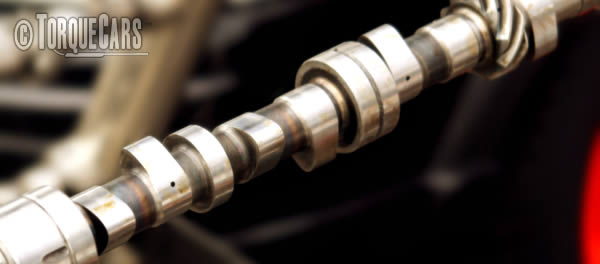
Fast road cams commonly boost the performance through the rev range, you could drop a little low end power but your high end rpm power will be higher.
Race cams, boost the high end rpm power band but as a result the car will not idle smoothly and low end power nearly always suffers.
A Motorsport and race cam won't do well if on the daily commute.
You should ideally optimize your torque band to your preferences so for a car used daily stick with a mild fast road Civic 4th Gen cam
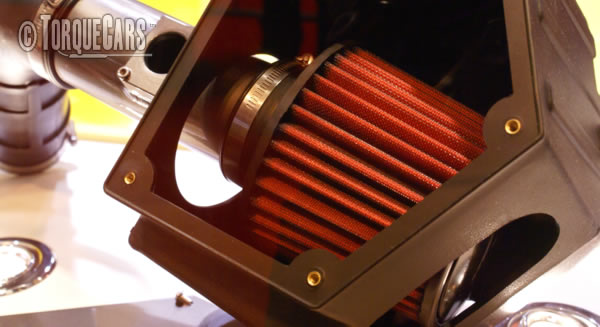
Different Civic 4th Gen engines respond differently primarily due to the airflow when cams are fitted depending on the cam being less aggressive cam durations than others as unique due to manufacturing tolerances and quality variations so check your engine on a rolling road.
The ecu map and fuelling and fuel pump and injectors also will make differences on the power gains you'll hit.
Longer valve durations can alter the power band, and on most engines there are some advantages to extending the intake or exhaust durations and valve lift.
ECU Mapping Improvements for the Civic 4th Gen
Remaps will help release the full potential of all the upgrades you've done to your Civic 4th Gen but an engine of this age is not easily remapped, however there are options open to you.
(The 4th Gen ECU Mapping is not an option, so an aftermarket ECU is the route to take, and most of these exceed the specs and performance of your factory ECU's but check it has knock protection and that you get it setup properly.)
This will also enable you to run fuel injection and possible even include forced induction.
It will usually give around 30% more power on turbocharged vehicles and you can expect to see around 15% on NA (naturally aspirated) engines, but figures achieved may vary depending on the upgrades you've applied and the condition of your engine.
Air Flow improvements on the Civic 4th Gen
It is the main goal to any engine tuning job to shove more fuel and air into each cylinder
Cold air intakes are the most effective way of increasing the performance of any car and the Honda Civic 4th generation is no exception.
The Weapon R Secret Weapon Air Intake which costs around $270 is a great option in this regard as this system can boost the performance of your car by 6 to 14 horsepower.
Another advantage of this air intake is that it is very easy to install and maintain. Thus, you don’t need to be a rocket scientist for getting the added performance numbers.
Another cold air intake that we recommend for the Honda Civic 4th generation is the AEM Cold Air Intake.
Its precision CAD design aids the part in easy installation and enhanced airflow. The added benefit of this part is that it comes along with AEM’s limited lifetime warranty.
Design and flow characteristics of the Intake manifolds can make a substantial effect on to fuel mixing and power on the Civic 4th Gen.
It's not uncommon that intake manifold are ripe for aftermarket parts, although a few manufacturers provide decently flowing intake manifold.
Fitting big valve kits, carrying out port matching and head flowing will also raise torque, the fantastic side effect is it will afford you a better torque increase on other tuning parts.
Civic 4th Gen Turbo & Supercharger Upgrades
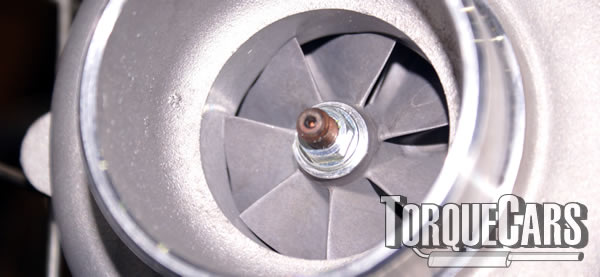
NA (naturally aspirated) engines need quite a lot of work when you add a turbo, so we have a separate guide to help you take into account the pros and cons of going this route on your Civic 4th Gen
The more air you can get into an engine, the more fuel it can burn and uprating the induction with a turbocharger upgrade makes significant power gains.
After installing a cold air intake system, the next thing you might want to do is install a supercharger on your car.
KraftWerks Supercharger Kit is one of the best possible options in this regard and this part will set you back around $2950.
However, with this system, you will have to use premium quality fuel (91 Octane or better). Besides this, you might also want to fit colder spark plugs for a performance boost.
However, each engine has its own set of limitations. To manage the power, we suggest you establish your limitations and use forged components.
A turbo upgrade on a Civic 4th Gen has been known to fail catastrophically on the car's first outing after the technician spent a significant amount of money on it.
Bigger turbos frequently have little power at low rpm, whereas smaller turbos spool up faster but lack peak horsepower improvements.
In the previous two decades, the variety of turbo units has constantly evolved, and we now have variable vane turbo units, enabling the vane profile to be varied in accordance with speed to minimise lag and boost top-end performance.
The exhaust flow from dual scroll turbo units is split into two channels and pushed into the turbo charger by different-profiled vanes. They also boost the engine's ability to scavenge.
When more air is drawn into the engine, you'll notice a limitation in the air flow sensor (AFM/MAF/MAP) on the Civic 4th Gen.
We observe 4 bar air sensors dealing with fairly substantial power improvements, whilst the OEM air sensor pulled horsepower at a much lower level.
Adding a supercharger or additional turbo will make large bhp gains, although more difficult to install. We have this article covering twinchargers if you want to read more.
Boost Controllers
Getting a premium quality boost controller is a great option for enchaining the performance of your Honda Civic 4th generation vehicle.
There are several options available in this regard but the following are the most prominent ones:
- AEM True Boost Controller;
- GReddy Profec Electronic Boost Controller;
- HKS EVC Electronic Boost Controller;
- Hondata 4 Port Controller Solenoid Kit;
- These parts cost around $400 each.
Civic Intercoolers
An intercooler is vital for ensuring a continuous supply of cold dense air to your Honda Civic 4th generation’s engine.
You can use a universal intercooler like the one from Mishimoto. Such a part is likely to cost between $150 and $250.
You can also choose a high-performance radiator from a reputed brand like Koyo. Such parts cost around $250.
Civic 4th Gen Fuelling Upgrades
You will need to ensure that the engine is not starved of fuel so should uprate the fuelling when you start going beyond 20% of a bhp increase. Fuel pressure boost valves raise the fuel pressure, providing a more snappy throttle response.
Civic Fuel Injector Kits
When a car gets more air, it also requires more fuel for the increased combustion process.
In case the fuel’s quantity is not enough, the added air intake is of no benefit. That’s why you should also consider getting a performance fuel injector kit for your Honda Civic 4th generation.
Injector Dynamics and Grams offer high-performance fuel injector kits for cars of this era.
However such fuel injector kits can be expensive costing over $500 in most cases.
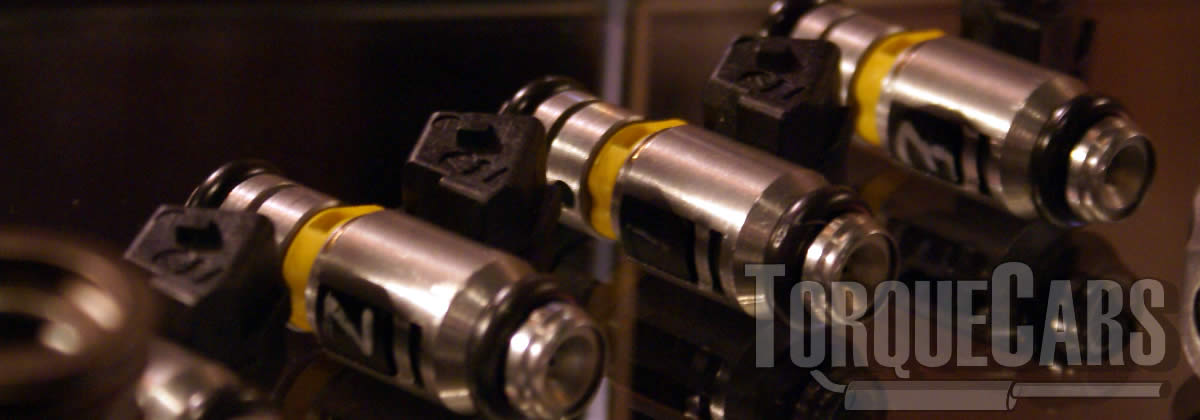 It makes sense to be generous with your injector capacity.
It makes sense to be generous with your injector capacity.
The accepted safe increase is to add 20% when specifying an injector, this accounts for injector deterioration and affords a little spare capacity should the engine require more fuel.
We think this one is common sense, but you'll need to match your fuel injector to the type of fuel your car uses as well.
Civic 4th Gen Performance Exhausts
You may need to replace your exhaust if your current exhaust is actually causing a flow problem.
On most factory exhausts you'll find the flow rate is fine even on modest power gains, but when you start pushing up the power levels you will need to get a better flowing exhaust.
An engine that produces more power needs a better exhaust system to expel the excessive heat produced during the combustion process.
Performance exhausts also have the benefit that they prevent backfiring and thus the engine can keep delivering enhanced performance for elongated periods.
Different companies offer their exhausts for the Honda Civic 4th generation. Some of these include:
- PRO Design Stainless Steel Exhaust System;
- Invidia N1 Exhaust System;
- HKS Legal Exhaust System;
- Revel Medallion S Exhaust System.
- Such exhausts cost between $190 to $780 depending upon their quality and performance.
But if your exhaust pipe is too big, ie: over 2.5 inches bore, you will lose a lot of your flow rate and end up sapping power and torque.
For road going cars mods such as a sports catalyst pretty much remove this restriction,mainly due to it's larger size and surface area, and will effectively raise the performance to levels you would expect without having a catalyst installed.
This keeps the car road legal and will better flow due to it's higher internal surface area and design.
The alternative test pipe mod or cat removal should be considered an off road only mod, as removing a catalyst is illegal in most territories and regions for road registered cars (and in some you can't even replace a working catalyst).
Alloy wheel Upgrades for the 4th Gen Civic
Alloy wheels are lighter and better for performance, as well as keeping brake discs cool. A decent directional tread pattern tyre may make a big difference in the way that your automobile handles.
It's possible that larger alloy wheels on a Civic 4th generation will reduce performance. Your final drive ratio will be altered if you install large alloy wheels.
If you want your car to have killer looks, wheels can play a pivotal role in doing so.
Enkei offers a wide array of aftermarket wheel options for the Honda Civic 4th generation.
You can check them out here. For the 4th generation cars, 14-inch alloy wheels with multiple spoke and design options exist. Although some people have installed larger rims without problems we would stick to a 14 inch rim size as the maximum on the 4th Gen Honda Civic.
Weak spots, Issues & problem areas on the Civic 4th Gen
The Civic 4th Gen engines are fairly reliable as long as they are looked after and serviced.
Carbon build up in the head, particularly around the valves which will sap power or create flat spots, this is a larger issue on direct injection engines but should be looked out for on all engines. We have tips on removing carbon To minimize this risk only use quality fuel and don't short journeys.
Service time oil changes are highly recommended on the Civic 4th Gen, and more so when the car is modified and will help maintain the long life of the engine.
If you want to know more, or just get feedback on Tuning your Civic 4th Gen engine please join us in our friendly forum where you can discuss Civic 4th Gen tuning options in more detail with our Civic 4th Gen owners. It would also be worth reading our unbiased Honda tuning articles to get insights into each modification and how effective they will be.
Please help us improve these tips by sending us your feedback in the comments box below.
We love to know what our members have got up to and which parts work best for them on each model of car. We use your comments and feedback to improve the accuracy of these Civic 4th Gen tuning guides which get regular updates and revisions.
Please Check out my YouTube channel, we're regularly adding new content...
PLEASE HELP: I NEED YOUR DONATIONS TO COVER THE COSTS OF RUNNING THIS SITE AND KEEP IT RUNNING. I do not charge you to access this website and it saves most TorqueCars readers $100's each year - but we are NON PROFIT and not even covering our costs. To keep us running PLEASE Donate here
If you liked this page please share it with your friends, drop a link to it in your favourite forum or use the bookmarking options to save it to your social media profile.
Feedback - What do You Think?
Please use our forums if you wish to ask a tuning question, and please note we do not sell parts or services, we are just an online magazine.
Help us improve, leave a suggestion or tip
Please watch this video and subscribe to my YouTube channel.

 Click to accept YouTube Cookies & Play.
Click to accept YouTube Cookies & Play.